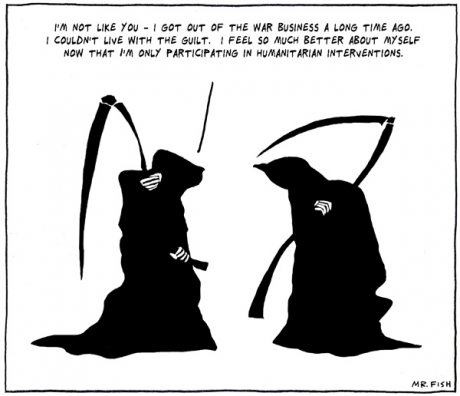News
You are here
Iraq provides tragic lessons for Syria about “humanitarian intervention”

May 29, 2013
While many are still debating the possibility of “humanitarian” intervention in Syria, innocent Iraqis are still paying the price of a similar Western intervention a decade later. Hundreds of Iraqis have been killed and wounded this month as a result of continuous suicide attacks, bombings and clashes.
These are a direct result of US intervention, whose neoliberal and imperial occupation relied on divide and rule—arming sectarian death squads, imposing a Parliament divided along sectarian lines, and even contemplating splitting up the country (whose borders were created by British intervention a century ago).
While the bulk of US troops (but not private contractors or military bases) pulled out a year and a half ago, the imperial architecture set up the previous decade remains. As a result there are both indiscriminate bombings and targeted killings, which continue to undermine real democracy that Iraqis have been aspiring to for decades.
The death toll this month, May, is 450. The United Nations says more than 700 were killed in April, the highest monthly toll in almost five years. There are fears that sectarian conflict in Syria would ripple across Iraq as well, and spread across the region. Clashes between militants and government forces have also been increasing in the western Anbar province in Iraq. The militant groups have been growing stronger in Anbar, which is very close to the Iraqi-Syrian borders. There have been cross-cooperation with militants in Syria, mainly from Jabhat Al-Nusra or Nusra Front. People in Anbar are trapped in the middle of violence, which is escalating everyday.
The current situation in Iraq clearly demonstrates the meaning of Western “humanitarian” intervention, which killed a million people and left ongoing violence. History is repeating itself with Syria, with the West arming sections of the opposition, unleashing Israel and contemplating direct military intervention. The real humanitarian intervention comes from the Syrian revolution itself—which unites instead of dividing people along sectarian lines—and the best way we can help is by opposing Western intervention.
If you like this article, come to Marxism 2013: Revolution In Our Time, a conference this weekend of ideas to change the world. Sessions include "Libya, Mali and Canadian imperialism", "Permanent revolution: the Arab Spring two years later", "Palestine, BDS and the Arab Spring", and "Egypt: class and revolution."
Section:










